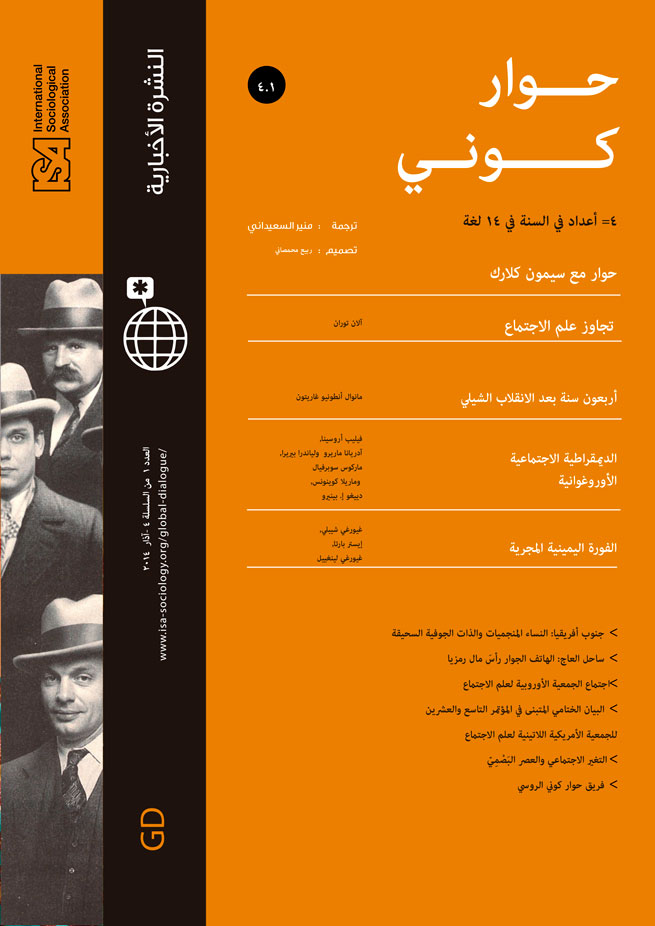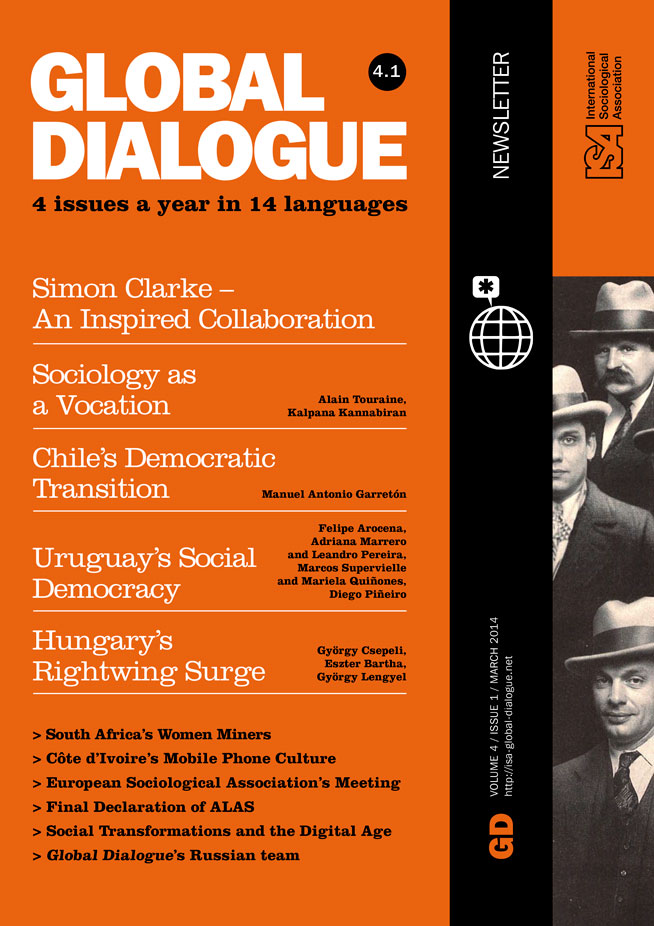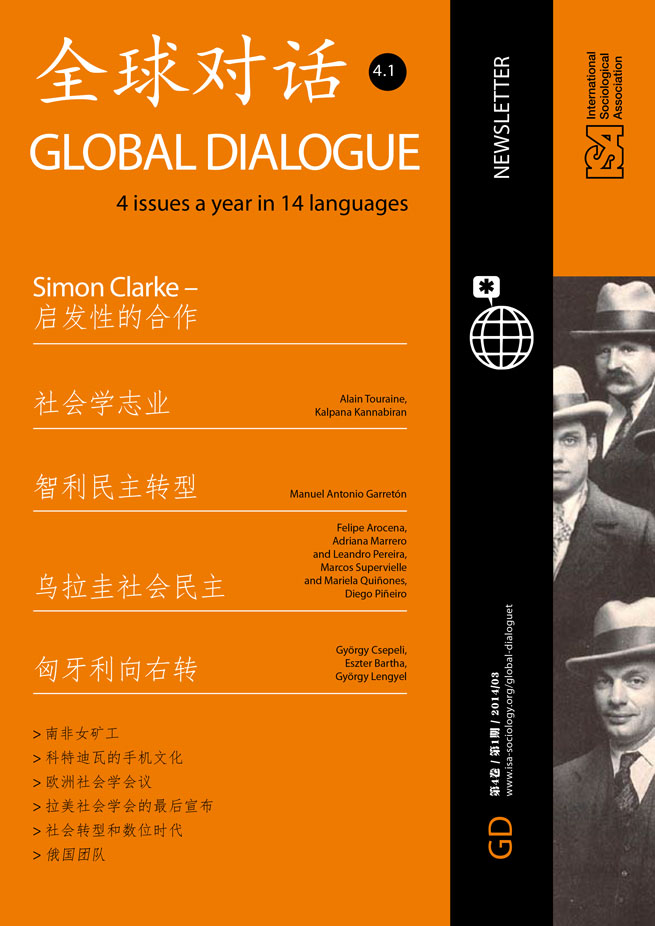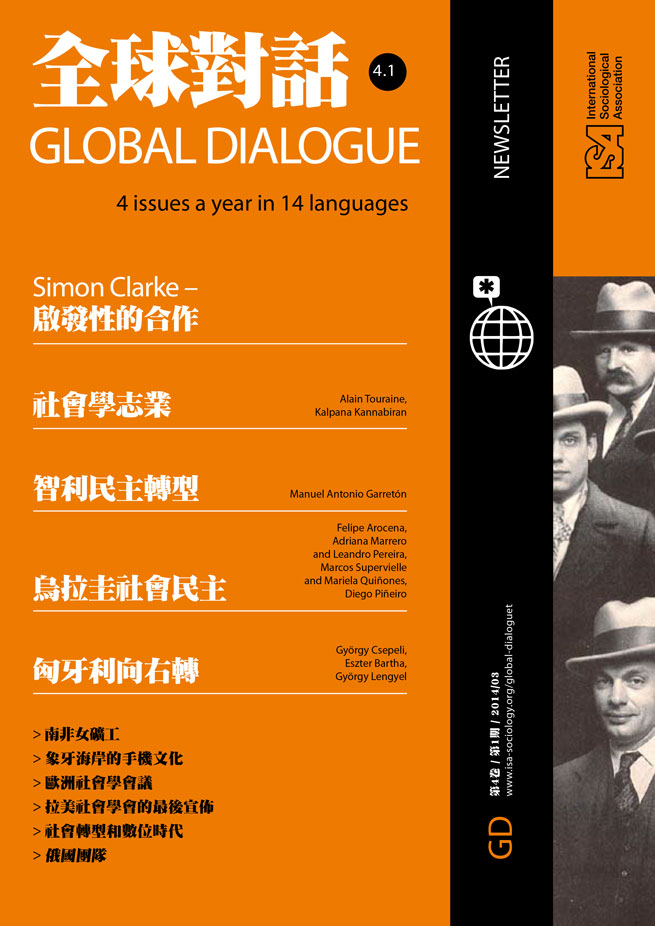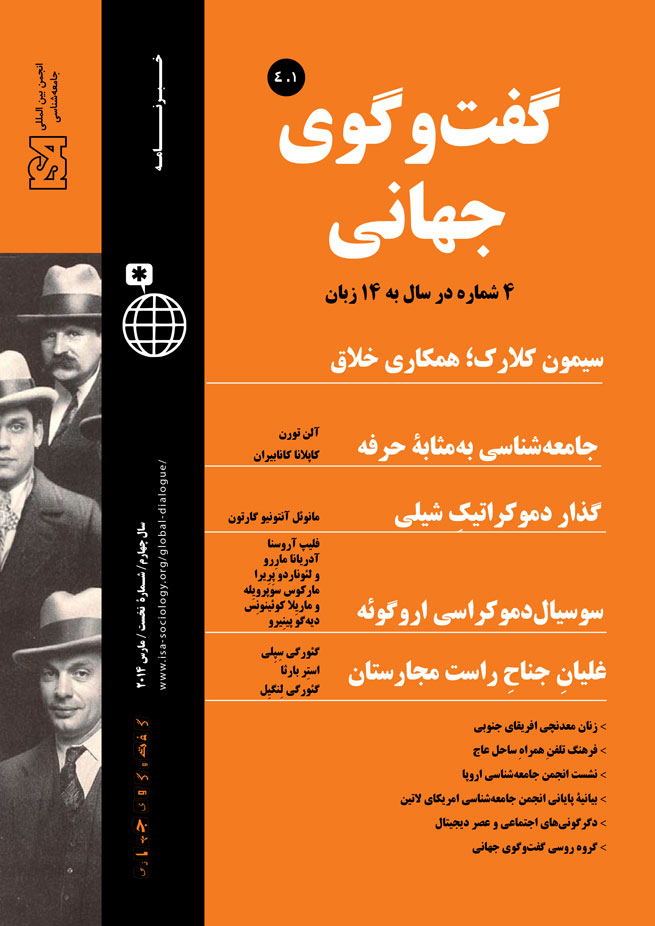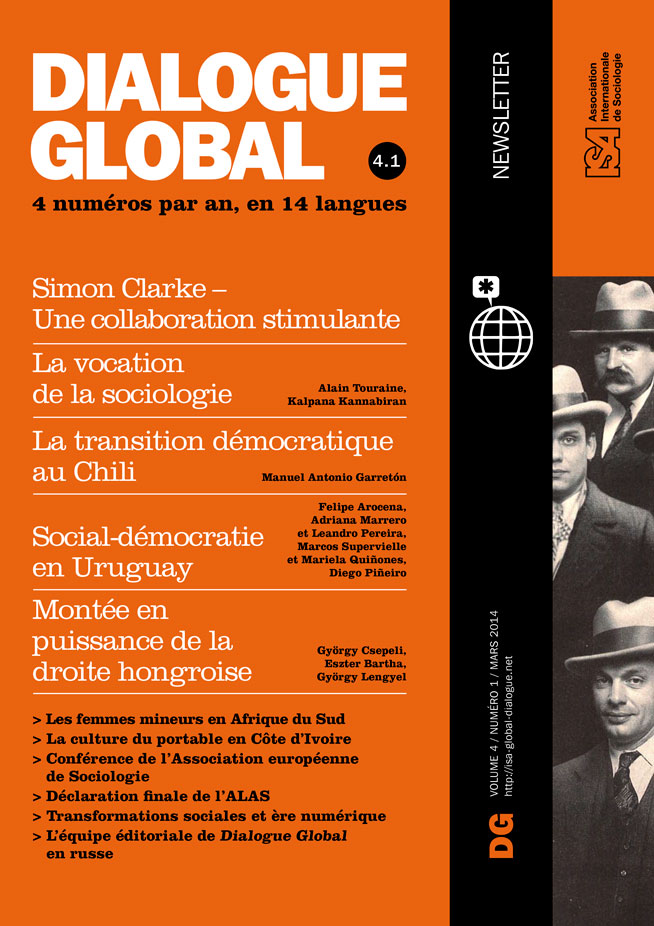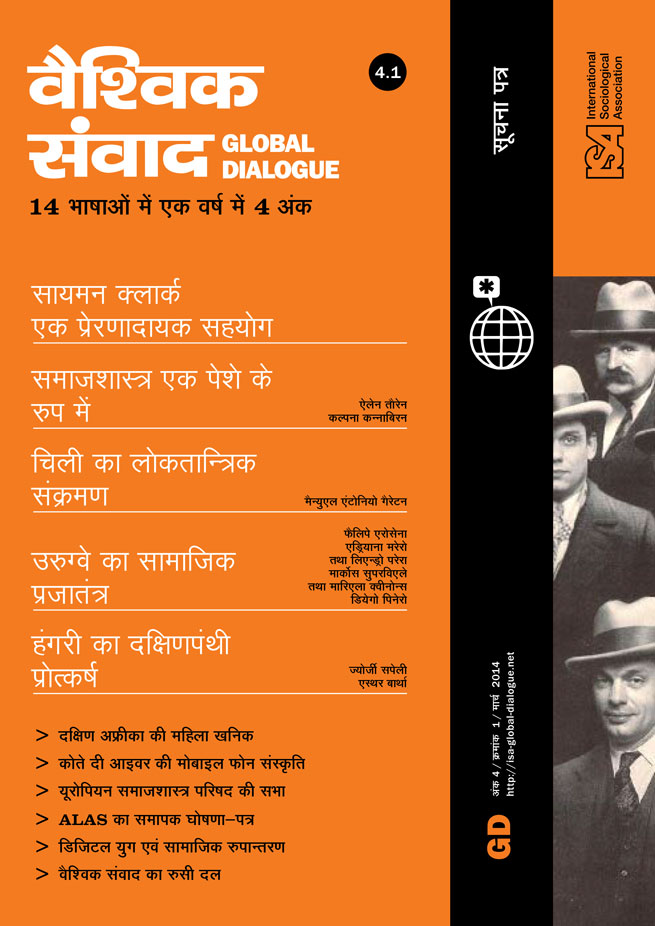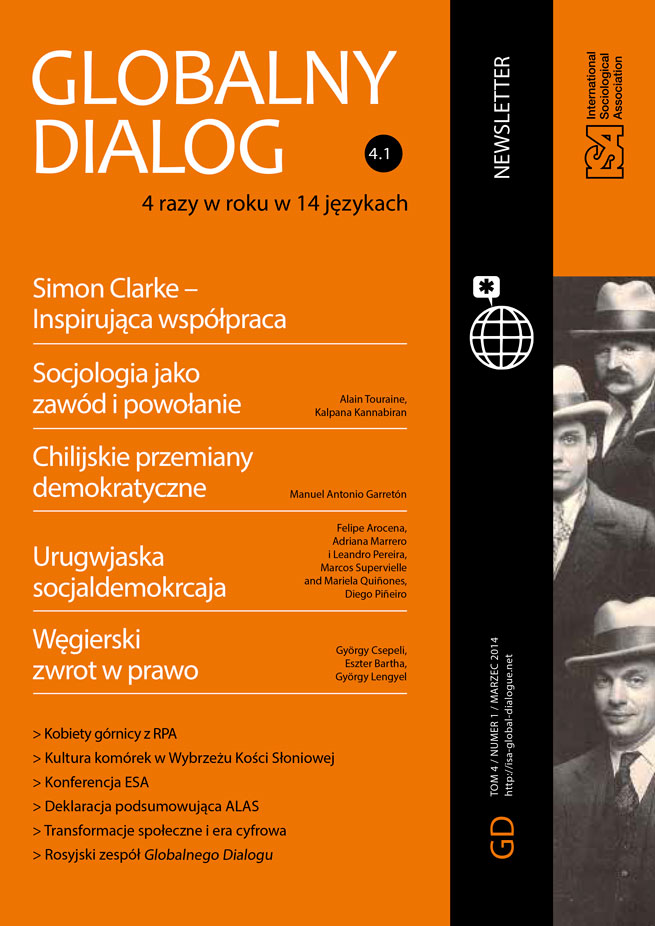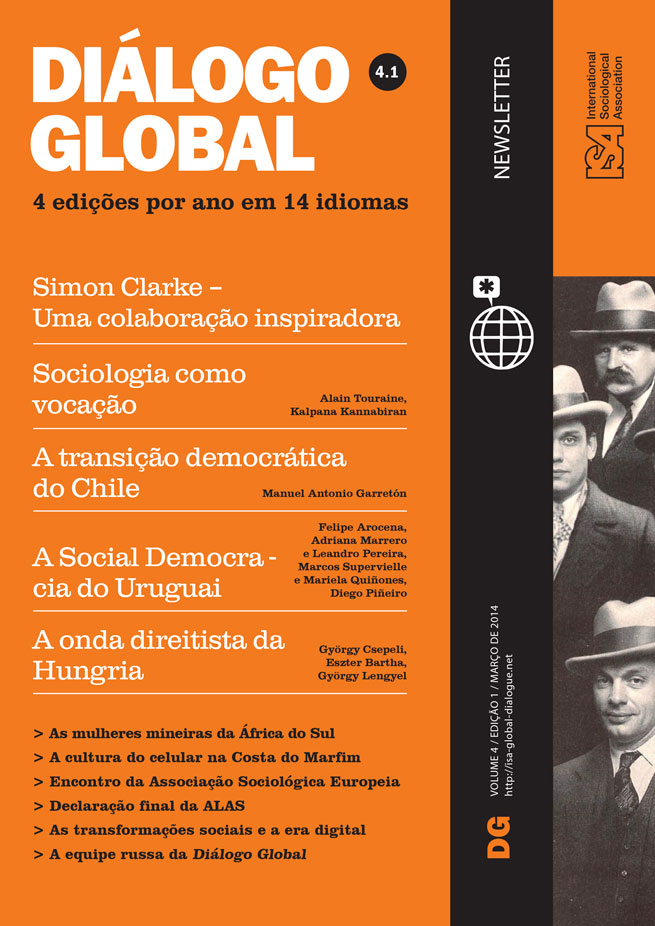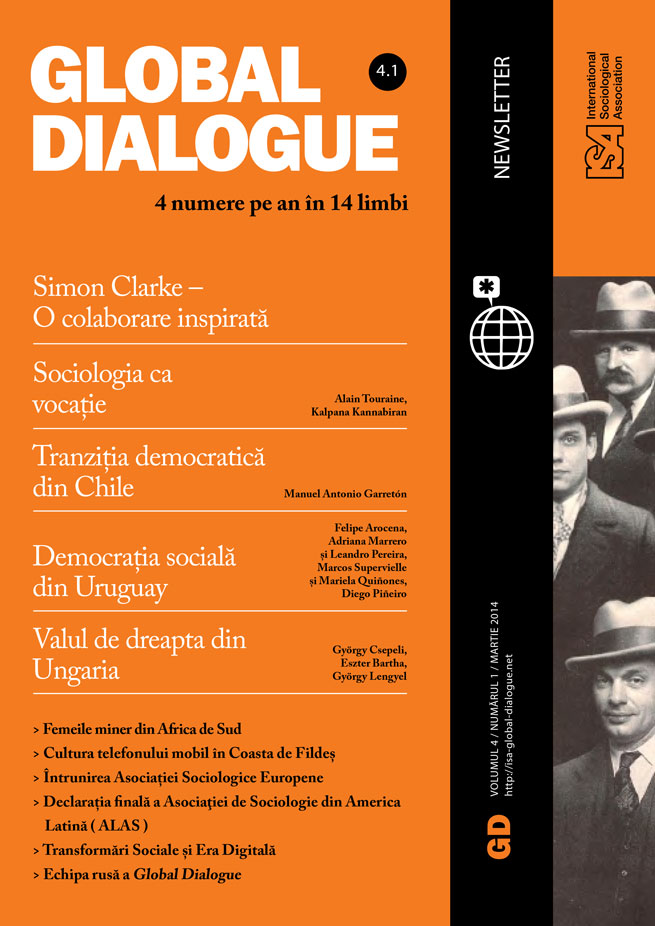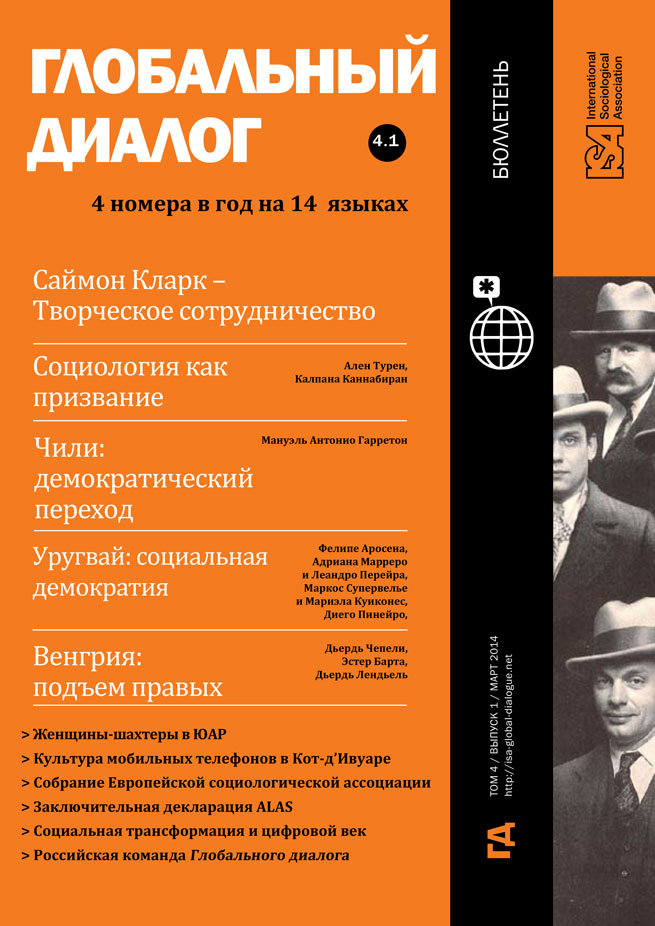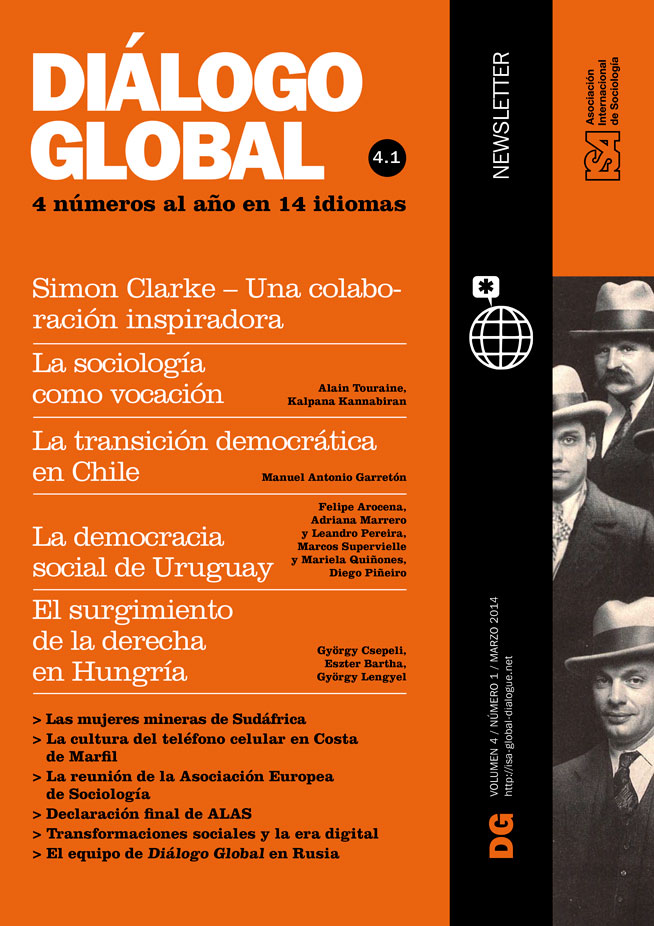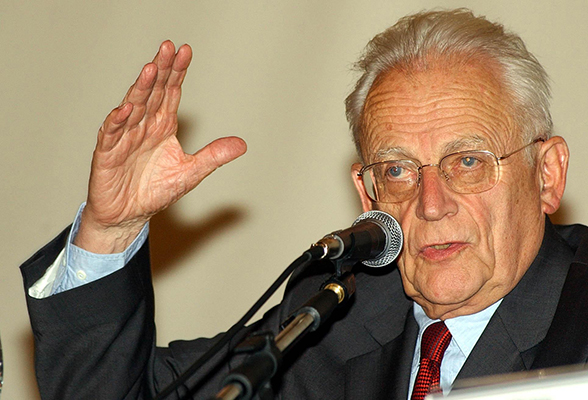Read more about Sociology as a Vocation
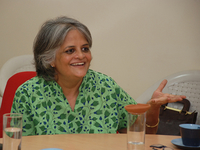
A Conversation between Law and Sociology
by Kalpana Kannabiran
February 10, 2014
For four decades Alain Touraine has been a towering figure in the world of sociology. Starting out as an industrial sociologist he made his name as a theorist of social movements, leading him to conceive of the collective self-creation of society, which, in turn, inspired a new methodology of sociological intervention. He is a sociologist with rare global reach, always seeking out social movements for the expansion of freedom and dignity in different corners of the world. A long stream of now canonical works have come from his pen, including The May Movement of Utopian Communism (1968), The Postindustrial Society (1969); The Production of Society (1973), The Voice and the Eye (1978), Solidarity: The Analysis of a Social Movement: Poland 1980-1981 (1983) (with François Dubet, Michel Wieviorka and Jan Strzelecki), The Return of the Actor (1984), and, most recently, The End of Societies. Touraine set up his own Center for Sociological Analysis and Intervention in the EHESS in Paris where he has trained scores of students from all over the world.
My first and most lasting orientation to sociology came from my opposition to a school system which was more interested in defending its own norms than in nurturing the different needs of young people. I was a strange case of an unhappy and not very successful school boy who, in the end, excelled in one of the most prestigious “competitive exams” in his country, thereby becoming a student at the renowned École Normale Supérieure. After two years I left this wonderful place, spent one year partly traveling in Central Europe and partly working as a semi-skilled coal miner.
Georges Friedmann, the main figure behind the newly born European industrial sociology invited me to join a group of people who were studying occupational change introduced into various industries by new technologies. He put me in charge of the study of the major French automobile company, the nationalized Renault Company. I devoted one and a half years to studying the details of jobs and forms of industrial organization in the various plants of this huge corporation. I published the results of this intensive project in 1955 as my first book. Meanwhile I won another “concours” (competition) to become a professor of history but, thanks to Friedmann, I was also selected as a full-time researcher in sociology where I would be completely free to organize my own research group. Friedmann told me very gently: if you succeed in this difficult “concours,” I will obtain a job of researcher for you and if you fail, I will do the same, because we need a new generation of researchers.
After a few years at the French National Center for Scientific Research (CNRS) I spent a year in the US – Harvard, Columbia, and Chicago – and another year in Chile where I created a center for industrial sociology and, more importantly, married a young Chilean biologist. It was then, when I was 34 years old, that I was elected full professor at the École des Hautes Études des Sciences Sociales – it had a different name at that time – where I spent the rest of my professional life except for several years in Latin America and various semesters spent at UCLA, Berkeley, and the New School in New York City.
In 1966 my abiding hostility toward the official academic system prompted me to join the new university of Nanterre which had been founded near Paris. I did not realize I was going to spend a few years at the center of the student movement in Europe which was rapidly transforming itself into a major cultural and political drama. Of the people who wrote books about it I think mine was the most deeply favorable since I saw it as the most important example, after the Free Speech Movement at Berkeley in 1964, of the new “cultural” rather than “social” movements. At the same time I emphasized the contradictions between this cultural movement and the old Marxist, and especially Trotskyist and Maoist ideologies which interpreted it in political terms. It was, I said, like pouring young wine into old bottles. So that brought me into conflict both with conservative professors and with the “leftist” political groups. But I was in deep agreement with Daniel Cohn-Bendit, anarchist and anti-communist, who was most influential at Nanterre where I was teaching.
I became rapidly convinced that most forms of collective behavior cannot be defined in terms of agreement with or divergence from laws, customs, and dominant values. This led me to develop two different initiatives. The first consisted in studying collective behavior through participation – in several cases I spent one full year with members of a social or political movement without using questionnaires but instead organizing debates between activists and their supporters as well as their enemies. It was in this way that I studied the student movement ten years after Nanterre, the Anti-Nuclear movement, a regionally based nationalist movement, unionized workers in different sectors of the economy, and – which became our greatest joy – the Polish Solidarność movement of 1980-81, and unionized workers in the Chilean coal mines and steel industry. More recently, together with a friend, I devoted a rather long time to the study of the Zapatista movement in Chiapas in the southeast of Mexico. In each case I tried to make movement participants conscious of the highest possible meaning of their conflicts.
This approach was clearly opposed to functionalist studies which considered actors and systems as two sides of the same coin. On the contrary – and this was my second, theoretical initiative – I became more and more convinced that the logic of social system and the logic of social actors, or at least the logic of those whose action reached the highest level of innovative and critical intervention, were directly opposed to each other. Systems look for their own integration and for adjustments to external or internal change, while actors want to increase their own freedom of action, their autonomy, their dignity, and their responsibility. It certainly often happens that the two logics converge toward the same kind of choices. But in societies in which internal systems of control are relatively weak and whose environment is constantly changing the two logics often enter into contradiction, despite the constant creation of new forms of manipulating public opinion. Globalization, by itself, increases the complexity and, by way of consequence, the presence of multiple conflicts within any sector of social life.
We all know that sociology was created in industrial societies, that is in societies with a huge capacity to transform their environment and themselves through the creation of new forms of production, organization, distribution, and consumption, that is by using social and economic resources and methods. Now, for the first time societies saw themselves as able to create and transform themselves. That was magnificently expressed by Durkheim’s founding principal: to explain social facts by social facts.
A second category of transformations, equally important, refers to rationalization and marketization that now dominate not only the production of goods; they also impose their logic on communications and representations, so that social and economic actors are eliminated from those new and immense fields. Actors become less powerful to the extent that they only possess instrumental rationality.
Today, our main task is to understand social situations and social actors that are deeply different from those of industrial societies. On the one hand there is the rise of authoritarian regimes and, on the other hand, in the West industrial capitalism has been replaced first in 1929 and then again in 2007-8 by a financial capitalism which has no economic function but only to make profit by any means possible. Actors can only resist powerful speculative capital and the pursuit of pure profit by defending ethical universal values. While the notion of human rights did not capture the imagination during the long post-war period, we see now that Human Rights and Democracy are the only values which appear to be able to mobilize enough social and political forces to oppose anti-democratic authoritarian regimes and speculative capitalism.
We are as far as possible from the identification – typical of industrial society – of actors with systems. The 21st century began in 1989 with the fall of the Berlin Wall and the mass demonstration in Tiananmen Square, and then later came the Arab Spring. The democratic spirit receives everywhere the support of new forces. Recently I have tried to analyze this general change of approach in a rather long book called The End of Societies, which refers to the end of “societies” that thought and acted on themselves. Sociologists themselves must recognize that the concept of society no longer corresponds to the world in which we live. So while sociology itself could very well be renamed “political ethics,” the social sciences will not disappear.
Alain Touraine, École des Hautes Études en Sciences Sociales, Paris, France and former Vice-President of the ISA, 1974-78
This issue is not available yet in this language.
Request to be notified when the issue is available in your language.
If you prefer, you can access previous issues available in your language:
